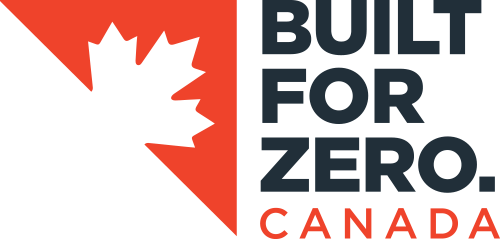Moncton, NB is having great success with its measures to support housing retention for people leaving their chronic homelessness by-name list. We dig into the how and why with the Built for Zero Canada community. This blog is a part of our bright spot series highlighting outstanding work in ending homelessness happening across Canada.
 Moncton is implementing key strategies to boost housing retention in their community as part of its efforts to end chronic homelessness—and they’re working.
Moncton is implementing key strategies to boost housing retention in their community as part of its efforts to end chronic homelessness—and they’re working.
The southeastern community in New Brunswick is in the third year of its three-year plan guiding the work to end chronic homelessness. The goal is to achieve functional zero by 2023. Moncton’s plan is resulting in tenants being moved from homelessness into housing and retaining that house at higher rates while also driving down evictions.
“Our why is simple,” says Dawn Wheadon, Affordable Housing Specialist at the Greater Moncton Homelessness Steering Committee. “Collectively, we believe in the right to housing. We know the root causes of homelessness in Moncton, and we know the barriers to accessing and sustaining housing.
“We also know our people experiencing homelessness by name and are working to increase our stock and supports, which includes targeting those resources to high priority folks in community.”
Multi-pronged approach
The elements of Moncton’s plan leading to housing retention has many key aspects, including using a By-Name List (BNL) to prioritize the most vulnerable. The team uses a person-centred approach to match people from the list to the housing and supports that best meets the client’s needs. They also attach an agency to provide housing case management to the tenant immediately.
“The agency will walk side by side with the tenant from the beginning,” Dawn explains. “This means the agency will attend the viewing with the tenant and build a relationship with the landlord from the start. The landlord then has someone to reach out to when an issue arises so that interventions can take place before an eviction is considered.”
The team in Moncton explicitly outlines these expectations and obligations in best practices documents for the agencies and review it with the prospective tenant. These documents apply a strengths-based approach, so the tenant has autonomy and input into their own case management plan—and these efforts are constantly modified and improved for each tenant.
While most of the best practices are flexible, they’ve implemented some key mandatory steps such as setting up tenants on auto payments to their landlord which has resulted in fewer evictions due to failure to pay rent.
Improvements to housing retention
All of this work has resulted in a community that is working together toward a common goal, thanks to using the BNL to identify key priorities when a unit becomes available in Moncton and using person-centred factors to match a client’s needs, according to Dawn.
“The entire community pulls together in (a bi-weekly) conversation to identify services, ideas, resources that may be helpful to keep a person housed and address the issues that are impacting their tenancy early enough to prevent eviction,” she says.
Moncton has bi-weekly Coordinated Access meetings as well as community case consulting meetings. Data-driven decision-making plays a huge factor as well, utilizing BNL data not just to set priorities but influence government as well to create the necessary policies or fund projects to end homelessness.
Quality of life
As a Built for Zero Canada (BFZ-C) community, Moncton uses the resources provided by the movement as well as networking with other like-minded communities.
“We also have a strong and diversified local BFZ-C team, which meets biweekly to keep our work structured and focused in action cycles,” Dawn adds. “This helps us identify system improvements and create data-driven goals as a community.
“Without the support of our BFZ-C Improvement Advisor, we would not be where we are today.”
Despite the ongoing pandemic, Moncton has seen a huge reduction in evictions and much higher success rates in sustaining housing and increasing quality of life for people who were experiencing homelessness, according to Dawn. The team has quickly learned the gaps in services and worked toward improving them and learned to appreciate how key landlord engagement is in helping tenants work through common barriers.
“As a result, Moncton has taken this work to another level, and used our BFZ-C system and advisor to develop a full-time Landlord Liaison position in Moncton,” she says. “This position is widely used across Canada, however it never existed in Moncton before.”
While the team also has a step-by-step process to get someone experiencing homelessness into housing—it’s also consistent across the community—no matter the agency the person is working with.
“I see agencies stepping in to help other agencies when housing folks who are facing complex situations or when an agency may be short staffed or have a heavy workload, other agencies are stepping in to help each other,” Dawn notes. “The competition between agencies no longer exists, we all work together!”
“It’s absolutely magical to see us all pull together in our Coordinated Access or Case Consulting meetings.”
Together, Moncton is working hard to end chronic homelessness by 2023, the first step on the path to ending all homelessness.
This blog is a part of our Bright Spot series highlighting outstanding work in ending homelessness happening across Canada.
